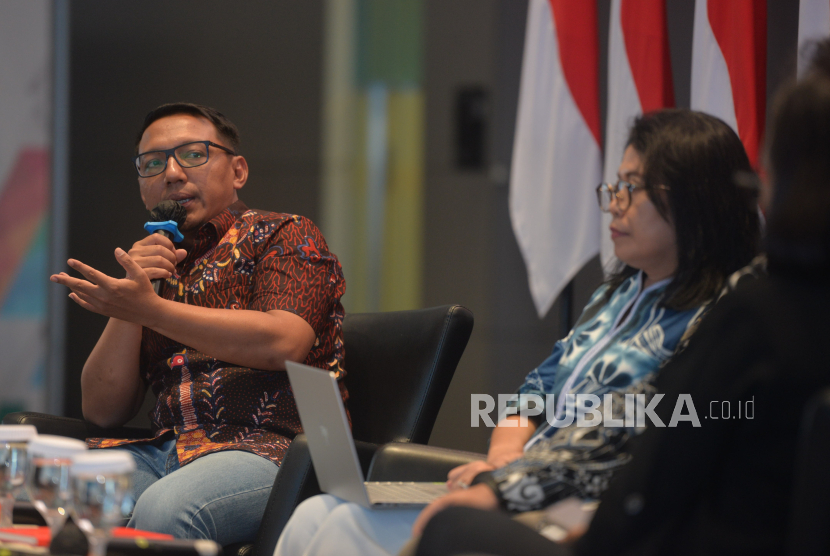REPUBLIKA.CO.ID, JAKARTA — The Ministry of state-owned enterprises expressed its commitment to continue applying environmental, social, and governance (ESG) principles as an effort to realize sustainability goals. The social and governance aspects are judged to have been sufficiently maximised, while the environmental aspects still face a number of challenges.
Assistant Deputy for Social and Environmental Responsibility of the Ministry of SOE Fahrudin explained that the commitment in implementing ESG is reflected in the goals of the SOE itself. The Ministry of state-owned enterprises is known to have two main objectives, namely agent of value creator and agent of development.
On the agent of value creator side, SOEs are designed to provide value, both for stakeholders and governments always owners of business entities. It was clustered for SOEs that had high competition, such as in banking and telecommunications ventures.
While on the agent of development side, SOEs meet the needs of society or industry that cannot be met. So that people's needs become met, especially those that then have an impact on better economic growth.
For example, he said, state-owned enterprises built a toll road in Sumatra that, according to a feasibility study, it is unlikely that private companies would want to take it. So if it is calculated that there will be new economic growth in the Sumatra region, then state-owned enterprises implement it.
Then also at the agent of development, there was Perum Bulog who dealt with food issues, PT Perusahaan Listrik Negara (PLN) which dealt with electrical issues, and PT Pertamina which accommodated the needs of fuel oil (BBM) and gas fuel (BBG).
“Although there are these two parts, but still this is for the prosperity of the community. BUMN as a value creator will eventually create taxes and dividends, enter the state budget, which returns to society,” Fahrudin said at the ESG Summit Republika 2024 event entitled 'ESG Ala Indonesia' held at the Indonesia Stock Exchange Building (BEI), Jakarta, Thursday (12/9/2024).
The impact on society is, among other things, in the form of the creation of facilities that facilitate economic activity, which in turn can create well-being. Fahrudin said that the Ministry of state-owned enterprises has implemented the social values contained in the ESG concept.
“Actually, the social aspect of SOEs has implemented social principles in ESG,” he said.
Then from the aspect of governance, Fahrudin said that this aspect has also been realized. When compared with private, he calls the level of playing field of state-owned enterprises different. In private there are at least four provisions that must be followed, whereas in SOEs there are 13 provisions that must be followed.
“With this different level of playing field, so from the governance side it's already readable, that following 13 provisions would be more governance than just four provisions. Although I do not accept the possibility that private is better,” he said.
Meanwhile, from the environmental side, Fahrudin admits that it still takes a lot of effort to realize this aspect to the maximum. The challenges are also big, especially the cost issue.
“From an environmental point of view, we still need a lot. Like PLN, for example, its long-term plan seeks to reduce coal for its power plants, but with friendly investment, it costs money,” he explained.


